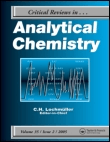
CRITICAL REVIEWS IN ANALYTICAL CHEMISTRY
Scope & Guideline
Synthesizing Knowledge for a Brighter Scientific Future.
Introduction
Aims and Scopes
- Analytical Techniques and Methodologies:
The journal emphasizes the development and refinement of analytical techniques, including chromatographic methods, mass spectrometry, and electrochemical sensing. It seeks to critically evaluate existing methodologies and propose innovative approaches for enhanced analytical performance. - Environmental and Food Safety Analysis:
A significant focus is placed on the analytical methods used for detecting contaminants and pollutants in environmental samples and food products. The journal publishes reviews that explore the effectiveness and reliability of various detection strategies. - Biomedical Applications and Diagnostics:
The journal covers the application of analytical chemistry in biomedical fields, including the detection of biomarkers, drug analysis, and disease diagnostics. This includes advancements in biosensors and molecular imaging technologies. - Emerging Materials and Technologies:
There is a growing emphasis on the integration of novel materials, such as nanomaterials and metal-organic frameworks, in analytical applications. The journal highlights innovative uses of these materials in enhancing sensitivity and selectivity in analyses. - Interdisciplinary Approaches:
The journal promotes interdisciplinary research that combines analytical chemistry with other scientific domains, such as biology, environmental science, and material science. This approach fosters collaborative advancements and broader applications of analytical techniques.
Trending and Emerging
- Nanotechnology in Analytical Chemistry:
There is a significant increase in research focusing on nanomaterials and their applications in analytical methods. This includes the development of nanomaterial-based sensors and probes that enhance detection capabilities and sensitivity. - Biosensors and Point-of-Care Testing:
The integration of biosensors in clinical diagnostics and food safety analysis is gaining momentum. Reviews exploring the latest advancements in biosensing technologies, particularly those utilizing CRISPR and other molecular techniques, are increasingly common. - Green Chemistry and Sustainable Practices:
A growing emphasis on environmentally friendly methodologies is evident, with reviews discussing green solvents, sustainable extraction techniques, and the minimization of chemical waste in analytical processes. - Machine Learning and Data Analysis in Chemistry:
The application of machine learning and AI in analytical chemistry is emerging as a vital theme. The journal is increasingly publishing reviews on the use of computational techniques to enhance data analysis and interpretation in various analytical contexts. - Real-Time and In Situ Analytical Techniques:
There is a trend towards the development and application of real-time and in situ analytical techniques, particularly in environmental monitoring and biomedical applications, reflecting the need for timely and actionable data.
Declining or Waning
- Traditional Chromatographic Techniques:
Despite their foundational role in analytical chemistry, traditional chromatographic methods are increasingly overshadowed by advancements in more innovative and efficient techniques. Reviews focusing solely on older chromatographic methods are becoming less frequent. - Basic Theoretical Analyses:
There has been a noticeable decrease in reviews that solely discuss theoretical aspects of analytical chemistry without practical applications. The current trend favors applied research that provides direct implications for real-world scenarios. - Generalized Reviews of Established Methods:
The journal has seen fewer submissions that provide generalized overviews of well-established analytical methods without new insights or applications. The emphasis has shifted toward innovative and cutting-edge approaches rather than reiterating existing knowledge.
Similar Journals

JOURNAL OF ANALYTICAL CHEMISTRY
Innovating Insights in Analytical ChemistryJOURNAL OF ANALYTICAL CHEMISTRY, published by PLEIADES PUBLISHING INC, stands as a pivotal resource in the field of analytical chemistry, offering an innovative platform for researchers, professionals, and students to advance their knowledge and contribute to the discourse within the discipline. With an ISSN of 1061-9348 and an E-ISSN of 1608-3199, this journal features a focused exploration of analytical methodologies, instrumentation developments, and applications across various domains, contributing to practical and theoretical advancements in the field. Currently ranked in the Q3 category in Analytical Chemistry with a Scopus rank of #111 out of 156, it provides critical insights and innovation strategies for professionals aiming to enhance their analytical capabilities. Access to the journal is through standard subscription models, and it covers an extensive range of topics pertinent to the discipline from 1996 to 2024. Engage with the JOURNAL OF ANALYTICAL CHEMISTRY to be part of a vibrant research community dedicated to push the boundaries of analytical practices.
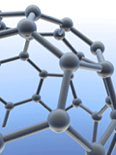
Annual Review of Analytical Chemistry
Connecting Ideas, Inspiring Innovations in ChemistryAnnual Review of Analytical Chemistry, published by Annual Reviews, is a premier journal that serves as a critical resource in the field of analytical chemistry, providing comprehensive and cutting-edge reviews that synthesize recent advancements and pivotal research findings. With an impressive impact factor and ranked Q1 in both Analytical Chemistry and Miscellaneous Medicine, it stands as a leader in disseminating knowledge that spans the intricacies of chemical analysis, enhancing the scientific discourse within the community. Available in both print (ISSN: 1936-1327) and online (E-ISSN: 1936-1335), the journal is accessible to a wide audience, fostering innovation and collaboration among researchers, professionals, and students alike. Its scope includes the converged years from 2008 to 2024, showcasing its commitment to providing relevant and timely insights that impact practice and education in analytical techniques, methodologies, and applications. The Scopus rank of #6 out of 156 in Analytical Chemistry, placing it in the 96th percentile, underscores its significance and the high regard in which it is held. As you explore the journal's offerings, you will find a wealth of knowledge that not only informs but inspires future discoveries in the realm of analytical chemistry.
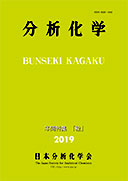
BUNSEKI KAGAKU
Championing Rigor in Analytical ResearchBUNSEKI KAGAKU, published by the Japan Society Analytical Chemistry, is a reputable journal dedicated to the field of analytical chemistry. With an ISSN of 0525-1931, this journal has been a crucial outlet for scholarly communication since its inception in 1952, converging its publication years from 1954 to 1957 and from 1959 to 2024. Although it holds a Q4 category ranking in the most recent 2023 quartiles of analytical chemistry and ranks 153/156 in Scopus, it continues to serve as a platform for quality research, fostering advancements in the field. BUNSEKI KAGAKU is based in Tokyo, Japan, and emphasizes the critical importance of analytical techniques in scientific inquiry. With a commitment to professionalism and rigor, the journal provides a vital resource for researchers, students, and professionals seeking to explore innovative methodologies and contribute to the ongoing dialogue in analytical chemistry.
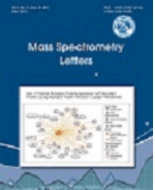
Mass Spectrometry Letters
Empowering Researchers through Open Access Discoveries.Mass Spectrometry Letters is a pioneering open-access journal published by the Korean Society for Mass Spectrometry, specializing in the diverse fields of analytical chemistry, biochemistry, and spectroscopy. Established in 2010, this journal aims to disseminate groundbreaking research and advancements in mass spectrometry and its applications across various scientific domains. Though currently categorized in the Q4 quartile in key analytical fields, Mass Spectrometry Letters serves as an essential platform for researchers, professionals, and students to share innovative methodologies, emerging trends, and practical applications of mass spectrometry, thus fostering collaboration and advancing knowledge in the scientific community. With a commitment to open access, articles published since 2010 are readily available, enabling widespread distribution and engagement within the international research community. Located in Daejeon, South Korea, and actively converging research through 2024, the journal holds the potential to grow its impact and relevance within the dynamic landscape of mass spectrometry.
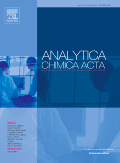
Analytica Chimica Acta
Catalyzing interdisciplinary collaboration in analytical sciences.Analytica Chimica Acta is a prestigious peer-reviewed journal published by ELSEVIER, renowned for its significant contribution to the fields of analytical chemistry, biochemistry, environmental chemistry, and spectroscopy. Established in 1947, this journal has solidified its reputation, reflected in its impressive impact factors and Scopus rankings, including a Q1 classification in Analytical Chemistry and Spectroscopy, and a Q2 ranking in both Biochemistry and Environmental Chemistry. With its comprehensive scope, Analytica Chimica Acta aims to publish innovative research, critical reviews, and technical notes that advance the understanding and application of analytical methods. As an essential resource for researchers, professionals, and students alike, it encourages the dissemination of high-quality research that addresses contemporary challenges in chemical analysis and promotes interdisciplinary collaboration. While the journal operates primarily on a subscription basis, it also offers unique opportunities for authors to reach a broad audience and engage in the global scientific discourse.

MICROCHIMICA ACTA
Unveiling the Future of Analytical ScienceMicrochimica Acta is a prestigious journal in the field of Analytical Chemistry, published by Springer Wien. With a history spanning nearly a century, since its inception in 1926, this journal continues to play a significant role in advancing chemical research, currently ranking #18 out of 156 in its category according to Scopus, placing it within the top 88th percentile. Microchimica Acta publishes high-quality, peer-reviewed articles that cover a diverse range of topics in analytical techniques, instrumentation, and methodologies. Researchers and professionals alike benefit from its comprehensive scope, which fosters innovation and knowledge-sharing in the analytical chemistry community. Despite its non-open-access model, the journal is committed to disseminating critical findings that drive progress in academia and industry, ensuring its relevance in a continually evolving field. As an essential resource, Microchimica Acta not only contributes significantly to scholarly discourse but also provides a platform for emerging concepts and practices in the analytical landscape.
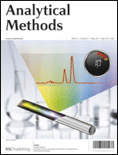
Analytical Methods
Connecting Ideas, Transforming PracticesAnalytical Methods, published by the renowned Royal Society of Chemistry, is a distinguished journal that has been serving the scientific community since its inception in 2009. Specializing in the fields of Analytical Chemistry, Chemical Engineering, and General Engineering, this journal holds a reputable position with an impressive Q2 ranking in three relevant categories as of 2023. With its focus on innovative methodologies and advanced applications in analytical science, it aims to disseminate cutting-edge research and foster dialogue among researchers, professionals, and students. Although it is not an open access publication, it is accessible worldwide and provides critical insights into the latest developments in analytical techniques and their engineering applications. The journal also ranks highly in pertinent Scopus categories, such as being in the 77th percentile for General Engineering and 61st percentile for Analytical Chemistry, underlining its significance in advancing knowledge and practical applications in these fields. By participating in this journal, readers can expect to engage with high-quality research that influences the future of analytical practices and chemical engineering.

Journal of Analysis and Testing
Advancing analytical excellence for a sustainable future.Journal of Analysis and Testing is a premier academic journal published by SPRINGER SINGAPORE PTE LTD, dedicated to advancing the fields of analytical and environmental chemistry. With ISSN 2096-241X and E-ISSN 2509-4696, the journal has established a significant presence since its inception in 2017, converging its focus until 2024. The journal's outstanding rankings in 2023, including Q1 quartile placements in Analytical Chemistry, Instrumentation, and Spectroscopy, underscore its pivotal role in disseminating high-quality research. Researchers can access cutting-edge studies that explore innovative testing methodologies, electrochemical analyses, and material evaluations, making it an essential resource for professionals and students alike. The Journal of Analysis and Testing not only celebrates advances in science and technology but also promotes interdisciplinary collaborations, ensuring widespread impact across analytical and environmental domains. As such, this journal plays a vital role in shaping the future of analytical practices and methodologies, positioning itself as a key conduit for knowledge exchange in the scholarly community.
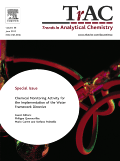
TRAC-TRENDS IN ANALYTICAL CHEMISTRY
Unveiling Trends that Shape the Future of ChemistryTRAC - Trends in Analytical Chemistry is a prestigious journal published by Elsevier Science Ltd, situated in the Netherlands. With an impressive impact factor reflected in its Q1 rankings across three major categories—Analytical Chemistry, Environmental Chemistry, and Spectroscopy—this journal stands at the forefront of disseminating pioneering research and advancements in the field of analytical chemistry. Established in 1981, TRAC provides a comprehensive platform for researchers to share influential studies and insights related to the latest trends, methodologies, and technologies in analytical techniques. Recognized globally, the journal excels in fostering cross-disciplinary dialogue and innovation, making it an indispensable resource for academics, professionals, and students alike. Explore the latest issues to stay abreast of cutting-edge developments that shape the analytical sciences.

Acta Chemica Iasi
Advancing Chemistry Through Open Access InnovationActa Chemica Iasi is a distinguished open-access journal dedicated to advancing the field of chemistry, published by the esteemed ALEXANDRU IOAN CUZA UNIVERSITY PRESS located in Iasi, Romania. Since its inception, this journal has served as a vital platform for the dissemination of significant research findings, theoretical advancements, and methodological innovations in various chemistry disciplines. As an open-access publication since 2013, it provides unrestricted access to high-quality articles, fostering collaboration and knowledge sharing among researchers, professionals, and students globally. Although specific metrics such as H-Index and Scopus rankings may be forthcoming, the journal's commitment to rigor and excellence ensures that it remains an invaluable resource for those seeking to stay at the forefront of chemical research. With a focus on promoting scientific inquiry and innovation, Acta Chemica Iasi continues to uphold a legacy of scholarly excellence and contribution to the chemical sciences.